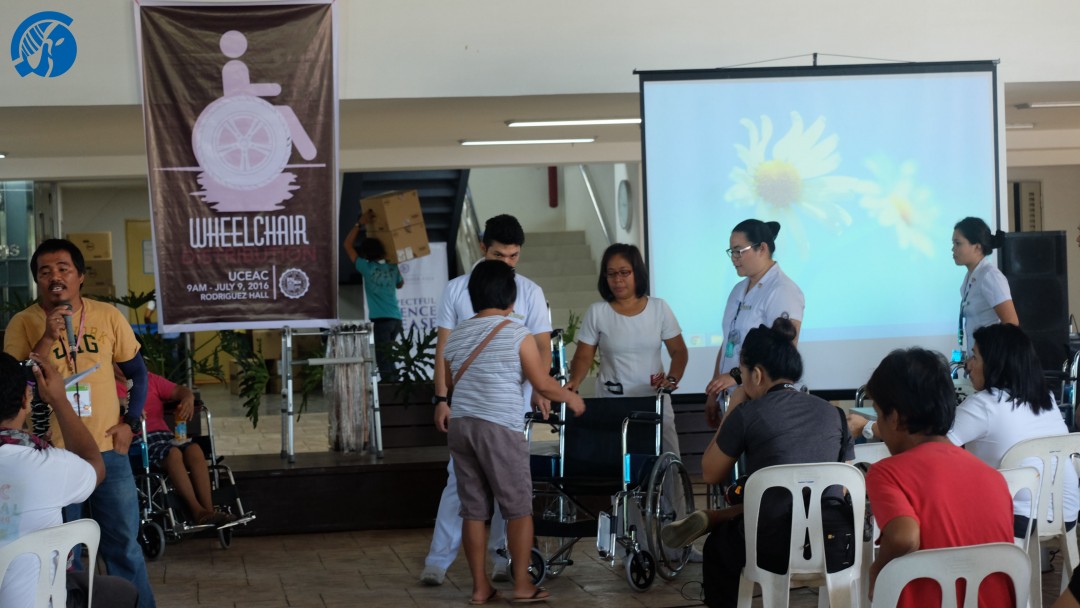
Nursing students distributing wheelchairs to PWD beneficiaries and their families. Photo taken by Anna Sophia Tarhata Piang
The Ateneo de Davao University (AdDU) through its University Community Engagement and Advocacy Council (UCEAC) conducted its annual wheelchair distribution program for Persons with Disabilities (PWDs) last July 9 at the Rodriguez Hall of Ateneo de Davao University.
UCEAC Chair Atty. Romeo Cabarde Jr. stated that the program has catered to hundreds of PWD’s.
“For [this] event alone, we have [catered to] 50 [beneficiaries]. Two weeks ago, we went to Compostela Valley for around 100 PWDs. Also, there are still 150 remaining wheelchairs that already have intended beneficiaries, they just have to be claimed. Today is just a ceremonial distribution, we will still continue distributions after the event. This year, we received 300 units of wheelchairs which will be given,” he said.
Cabarde also said that the program has been held by the university for years.
“[This is] our annual wheelchair and orthopedic assistive devices distribution. This is in collaboration with the American Wheelchair Mission and the Knights of Columbus in California. We started this in 2012, so this is the fourth year of our way of helping the PWD community, especially in the region but primarily here in the city of Davao,” he said.
Cabarde also explained that the goal of the program is to aid PWDs in society.
“Our primary objective is to able to contribute to the mainstreaming of PWDs in society, [as well as] to improve their lives so that they can still do the things that they do with the help of the wheelchairs and other assistive devices,” he said.
He also further stated that the program requires an application process in order to identify the potential beneficiaries that are truly in need.
“The process consists of an application form, also, they have to submit requirements. We request for a certificate of indigency, a medical statement of their conditions, and a picture [of them], in order to assess and validate [their statuses], and once we receive their application, we send our social work students would visit them for validation whether or not they are qualified for the program.
“[We prioritize] the indigent PWDs – those who cannot afford to buy wheelchairs, because we believe that those who can afford wheelchairs already have access, but those who are poor and indigent need to be given avenues to be able to afford them,” Cabarde said.